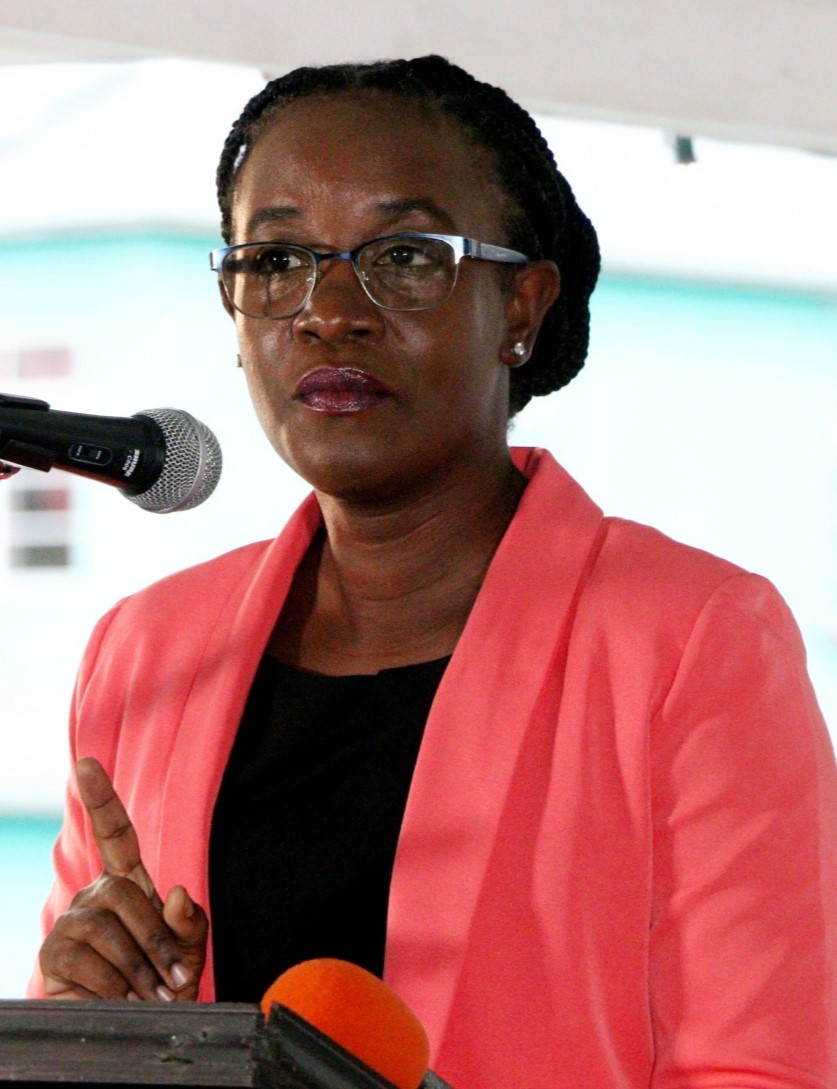Title: Barbados Secondary Schools Entrance Examination Results Spark Concern Over Educational System's Decline

June 26, 2024
Children’s rights advocate Felicia Dujon warns of a systemic failure in Barbados Secondary Schools Entrance Examination results, citing declining scores in English and Math over the past decade. Ministry of Education acknowledges need for improved teaching methods.
Children’s and human rights advocate Felicia Dujon has raised an alarm about the decline in results in the Barbados Secondary Schools Entrance Examination (BSSEE), warning that it is not just a temporary setback but “a systemic failure that threatens the future of our children and our nation”.
Her comments on Tuesday came a day after Minister of Education Kay McConney announced the results of the exam, and admitted that the ministry was concerned that an average of 22 per cent of students had scored below 50 per cent in the English examination and an average of 46 per cent scored below 50 per cent in Maths over the past 10 years.
“The performance of students in Mathematics and English demonstrates the important need for us to look at how we teach the basics and how children relate to what they are learning,” McConney said at a press conference.
Dujon, who is also the opposition Democratic Labour Party’s third vice-president, contended that for the past six years, there has been a continuous decline in educational standards and the poor pass rate in the two subjects could not be blamed solely on the COVID-19 pandemic.
“Parents and teachers have been crying out for additional time and resources to support students whose education has been severely disrupted by the COVID-19 pandemic. Yet, these pleas have fallen on deaf ears, despite the ministry receiving over $600 million annually in Budget allocations for education,” she said. “Despite receiving over $600 million annually, the Ministry of Education has failed to implement necessary interventions to support our students.”
She said the fate of students who have failed the BSSEE is of particular concern, adding that without proper interventions, they risk being placed into secondary schools ill-prepared, setting them up for further academic struggles and failures.
“Comprehensive remedial programmes must be established to support these students. These programmes should focus on bridging the knowledge gaps, providing personalised learning plans, and ensuring that students receive the necessary academic and psychological support to thrive in secondary education,” Dujon said.
She also questioned the lack of follow-through on the decision to phase out the annual exam, saying that it has left students and educators in a state of uncertainty and frustration.
“The continued existence of the Common Entrance Exam places undue stress on young students who are already grappling with the effects of a disrupted educational experience. Additionally, it perpetuates an outdated and inequitable system that fails to cater to the diverse needs and talents of our students, ultimately stifling their potential,” she said.
“The ministry must fulfill its promise to remove the Common Entrance Exams and replace them with a more holistic and equitable assessment system. This new system should consider the diverse needs and talents of our students, ensuring that every child has the opportunity to succeed.”
Dujon also called for the ministry to be held accountable for the “persistent disruptions caused by environmental issues and security breaches in public schools”.
“These disruptions have further impeded the learning process, making it incredibly challenging for students to achieve their full potential. The ministry’s inadequate response to these issues has created an unstable and unsafe learning environment, which is fundamentally unacceptable,” she said.
Immediate and effective solutions are required to address these pressing issues, Dujon said, recommending that the ministry provide additional time and resources to support students who have been impacted by the COVID-19 pandemic, such as targeted tutoring, mental health support, and extended learning opportunities.
Regarding the environmental and security issues plaguing schools, she said ensuring a safe and stable learning environment required investing in infrastructure and implementing stringent security measures.
“I urge the Ministry of Education, under the leadership of Minister McConney and CEO [Chief Education Officer] Dr Ramona Archer-Bradshaw, to listen to the voices of parents, teachers, and students, and to take decisive action to improve our education system,” Dujon added. “Our students deserve better, and it is our collective responsibility to ensure they receive a quality education that prepares them for a successful future.” (BT)


